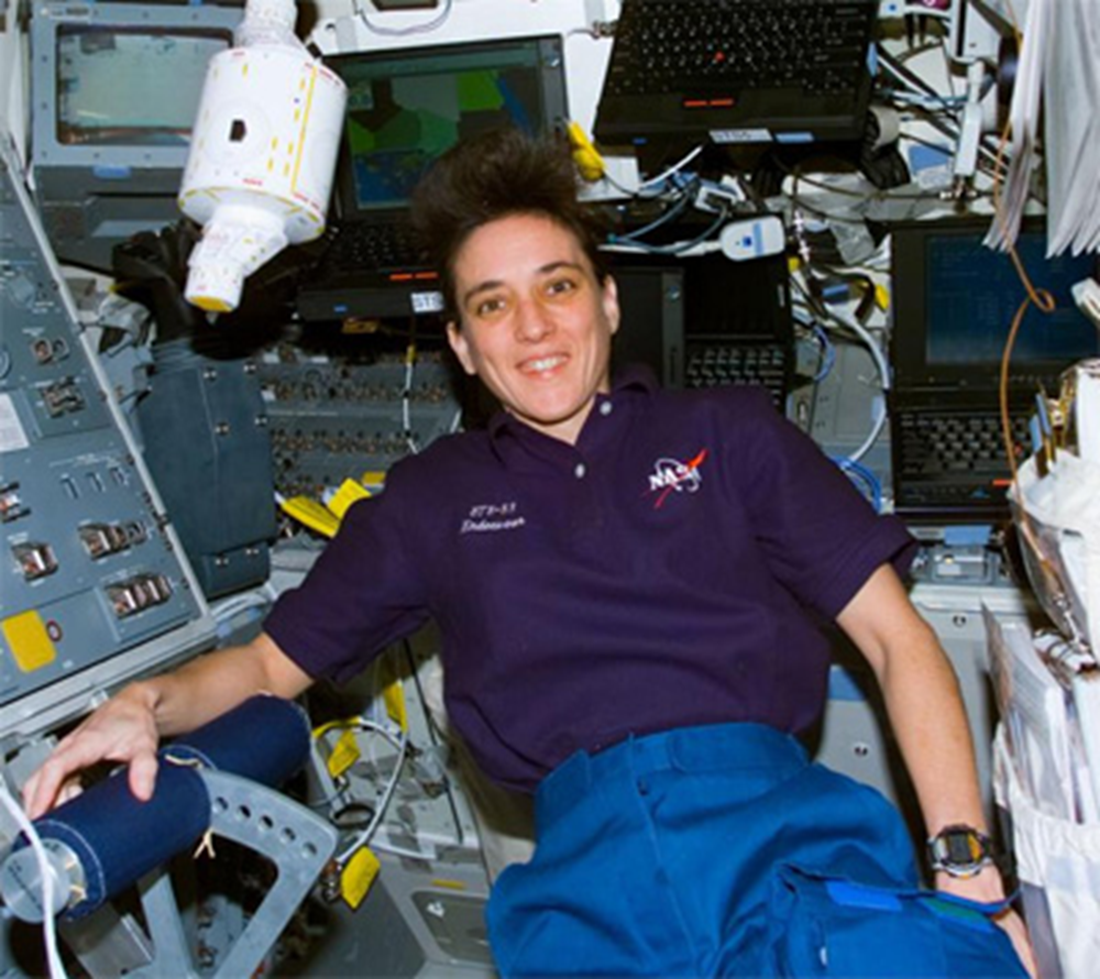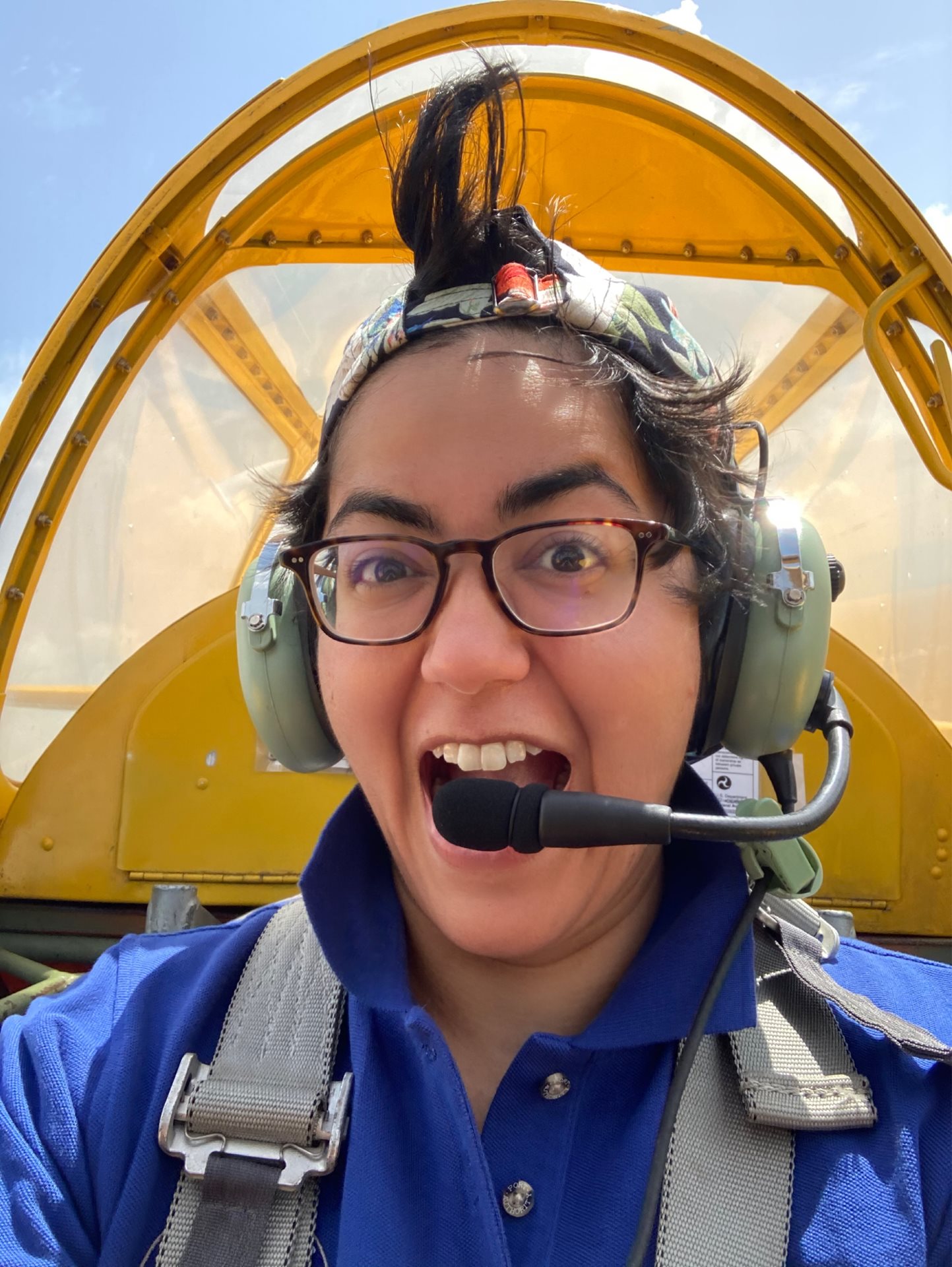February 2023

From the Cockpit to the Classroom: The Fascinating Journey with Dr. Currie-Gregg
Fatima Shami
I actually got Dr. Nancy Currie-Gregg as a professor by chance. I had to take a mandatory course called quantitative risk analysis (sounds like a mouthful and it was). At that time I didn’t know that she leads the Bush Combat Development Complex or that she holds an appointment as the Don Lummus ‘58 Professorship of Practice in Engineering in two departments. She has also worked as an astronaut and Chief Engineer at NASA. It doesn’t end there, she has also served in the U.S. Army, and retired as a Colonel with over 4000 flying hours. I consider just achieving one of these things mentioned so far about her a lifetime achievement. And trust me, knowing her this list will continue to grow with time. This semester, I am again in her class for human error and resilient systems. I wait for her classes like someone would wait for the next episode of a daytime soap with a cliffhanger.
I had a very average childhood. When Columbia exploded on reentry I was watching it on TV. I remember getting up on my knees while sitting on the floor watching the reentry. Multiple years have passed since then and I learned about the Columbia incident again last year but from a completely different perspective: the first-hand perspective of the Columbia incident from the Space Shuttle Program Safety and Mission Assurance Officer herself, Nancy Currie-Gregg. I did not expect that I would ever be a student of someone who was a part of the safety team at NASA, but an astronaut. Even to know an astronaut, let alone spending time within office hours seems like a far-flung idea sometimes even while it’s occurring. I have never told her but part of me is a nervous wreck that I would say something stupid and the other half is desperate for hints on my homework questions, even though on the surface I have a very confident and excited demeanor. (Please don’t tell her that)
Twice a week I get to listen to all the stories that come from such a vast and diverse experience base. One of Dr. Currie-Gregg’s many talents is a way of sharing experiences that make you feel like you were standing right next to her when these events occurred. I get transported from my office chair to the first-hand experiences at NASA and the stories of traveling in fighter jets, helicopters and space shuttles. It’s like watching theater even though the material we are covering is not even close to performing arts.
Back when I was a child being an astronaut was cool or really having any kind of flight experience. I’m guilty of saying that I wanted to be an astronaut growing up. Listening to Dr. Curie-Gregg I get glimpses of what astronaut training is like and sometimes I am even glad that I changed my mind. One of the greatest things I have learned from Dr. Curie-Gregg is that you don’t have to be an astronaut to face the same challenges and make a difference. She is the shortest person ever in the space but listening to her speak, her personality fills the classroom. She stomps her feet when she wants us to commit something to memory just like in the Army. There is something that cannot be put into words about attending her class; it’s like nothing else. Only one other professor has inspired me to the level of Dr. Currie-Gregg which was almost a decade ago. I still live by those words of wisdom I received while standing still on a stool for eight hours in that icebox of an operating room.
Dr. Currie-Gregg’s intelligence and thought process is far beyond most people I know but there are moments when she sounds so relatable. Graduate school is hard some days, well most days, and I wonder why I started this silly adventure but there are moments when I am completely absorbed. I am flying through the words of Dr. Currie-Gregg and those moments are the reasons that make graduate school worth it.
